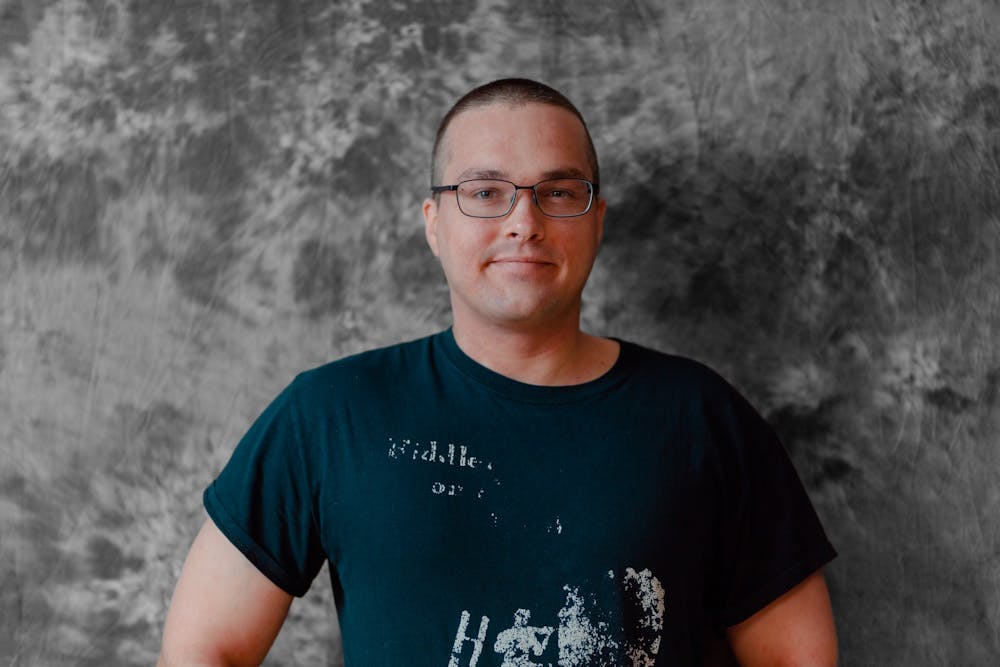I’ve worn a lot of hats in my life. I’ve stocked shelves and cashed out customers. I’ve tightened turnbuckles and chipped rust. I’ve cooked steak and fried fries. I’ve loaded trucks and supervised outbounds in warehouses. I’ve baked donuts for the Tim Hortons in the SU.
I’ve even steered ships through hurricanes.
And yet, I haven’t regretted leaving any of these paths behind.
Neither should you regret making change when you see fit.
When Hurricane Harvey hit Texas in August 2017, I was on the OSG Texas City, the very last ship to get out of the Houston Channel safely. The Houston Channel is the most difficult channel to navigate in North America, and much more so in Category 4 hurricane force winds. I can’t talk like a sailor in this paper because, well, frankly I think that’d be a little inappropriate XXX, but I can confidently say that during all of this, I was on the mick mack mucking wheel.
I learned a lot by going to sea, especially because I was so young. I naturally learned courage, but I also learned how to work with my hands, how to make due with what I have and how to solve problems creatively. I learned about discipline. When you’ve just gotten to bed after your 4 a.m. watch and you get a 4:40 a.m. call saying “All hands for mooring operations,” you learn how to get yourself up and go.
At the same time, I learned that this lifestyle — going to sea is not a job, but in fact a lifestyle — was simply not for me. Don’t get me wrong, the Seafarers International Union treated me well and I made so much money that much of my family was scratching their heads as to why I would walk away from it.
But I felt I had to do it.
I had to make this change.
When you work in the Merchant Marine, you will likely be at sea for roughly 6-8 months out of the year. When you’re at sea, a seaman is all you get to be. If you enjoy having a stable home, regular hobbies and the feeling that you belong to a specific community, rather than a visitor to a number of them, you’ll be disappointed.
I made this change because life’s too short. If I learned anything from joining the SIU the same day news hit that the SS El Faro went down with all hands and that a classmate had his head crushed during a routine ship exercise, it’s that message: life’s too short to wait.
Are you considering changing your major, like the other one-third of the student body? Do it now. Don’t even think about it any further.
Are you thinking of dropping out entirely to take up a trade or something similar? Do that too. Don’t delay.
I’m afraid I may have lost my composure writing that paragraph, but that’s OK, too. If you have a message burning in your soul, say it. Don’t even think about it. Put it on paper or in digital recording or even in a visual medium. Say it. Say it now while you can.
Some people may have some objections to my suggestion that you should change your life on a whim. Quite frankly, I feel bad for them. How long can you do the same thing before going crazy?
I would never advise you to live your life with zero concern for the future or money, but quite frankly, these are the worst excuses for not living the life you want to.
“But it’ll cost a lot.”
Fiat currency is fake anyway, paper is cheap. You can always make more money later. But you won’t always have your health and youth to experience the world.
While I was on the USNS PFC Dewayne T. Williams, named for the medal of honor recipient, I learned from my bos’n about buddhist koans, a form of open-ended storytelling that is supposed to inspire some sort of enlightenment from meditation. There was plenty of time for this practice while doing dummy work at sea:
“A monk apprentice and master are walking together one day when a flock of birds flies overhead. The apprentice says, ‘Look master! Birds!’ The master then hits him in the head with his staff shouting, ‘Fool! Look again!’”
I was young, dumb and incredibly tired after working 80 hour weeks for months the first time I heard this koan. Luckily, my bos’n was generous enough to give me his own interpretation.
“It’s a lesson on attachment,” he told me. “All things, good or bad, are fleeting in this world.”
Here’s a lesson I’ve learned for you: I’ve never regretted a change. In fact, the only thing I’ve ever regretted is not acting sooner. Donuts to bowlines, I regret nothing. And even if I did, I can always make another change.
You don’t lose yourself. This is another hesitation I’ve heard in regards to changing, the idea that you’ll lose whatever progress and lessons you’ve learned from one station in life. You don’t, though. You are not your job; you are the sum of your experiences. If you wish to become more, you can — you should do something different.
When I was kid, I used to look up at the sky, hoping to see a shooting star. I knew it was rare and I didn’t even know what I was looking for. I didn’t know what a shooting star looked like, until I went to sea and in open waters saw the night sky cleared of all light pollution.
I saw three one night while I was on watch.
No one’s stopping you from doing what you want. They couldn’t if they tried. Your life is fleeting. What will you do with it?
The features desk can be reached at features@ubspectrum.com





